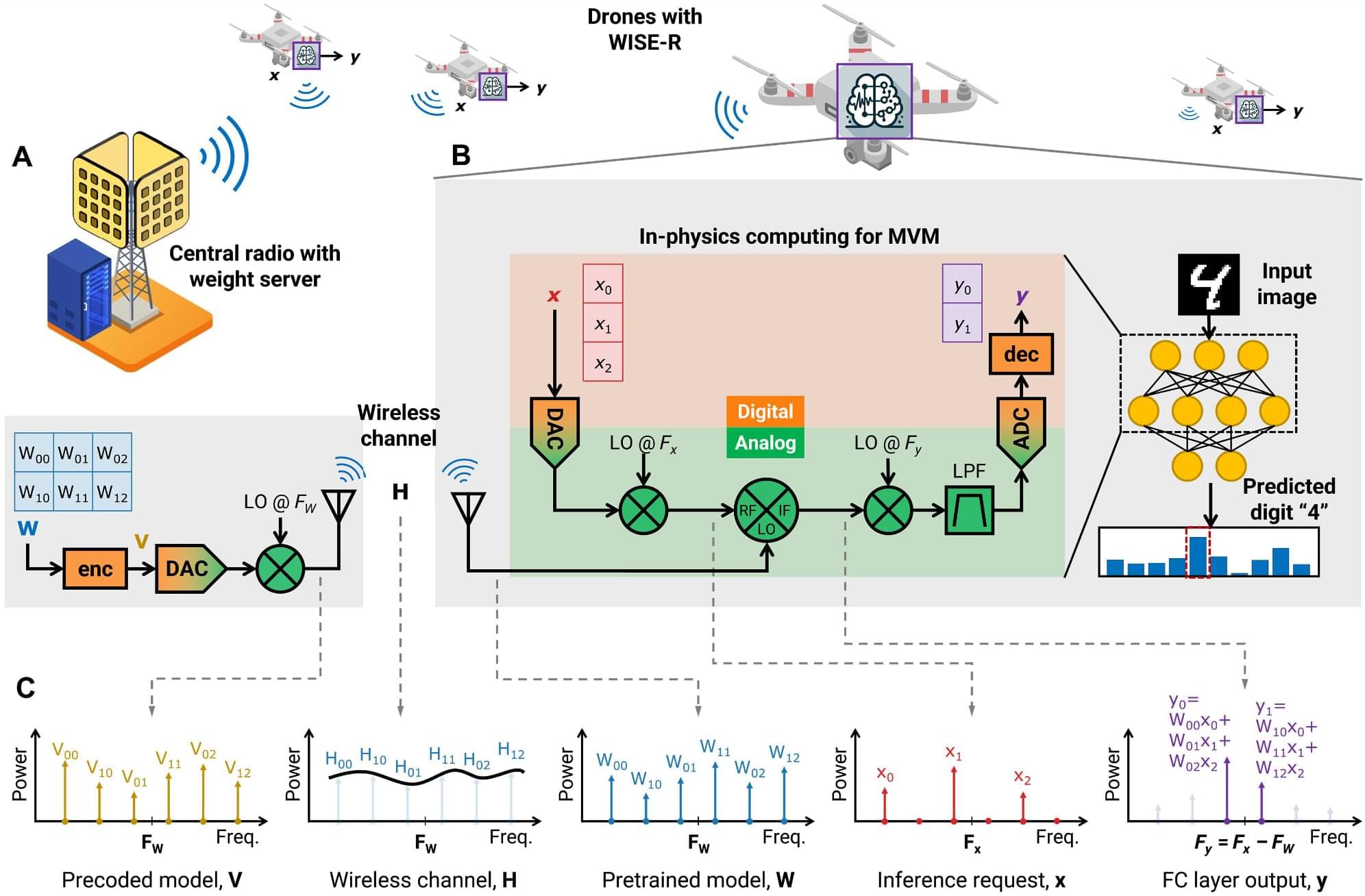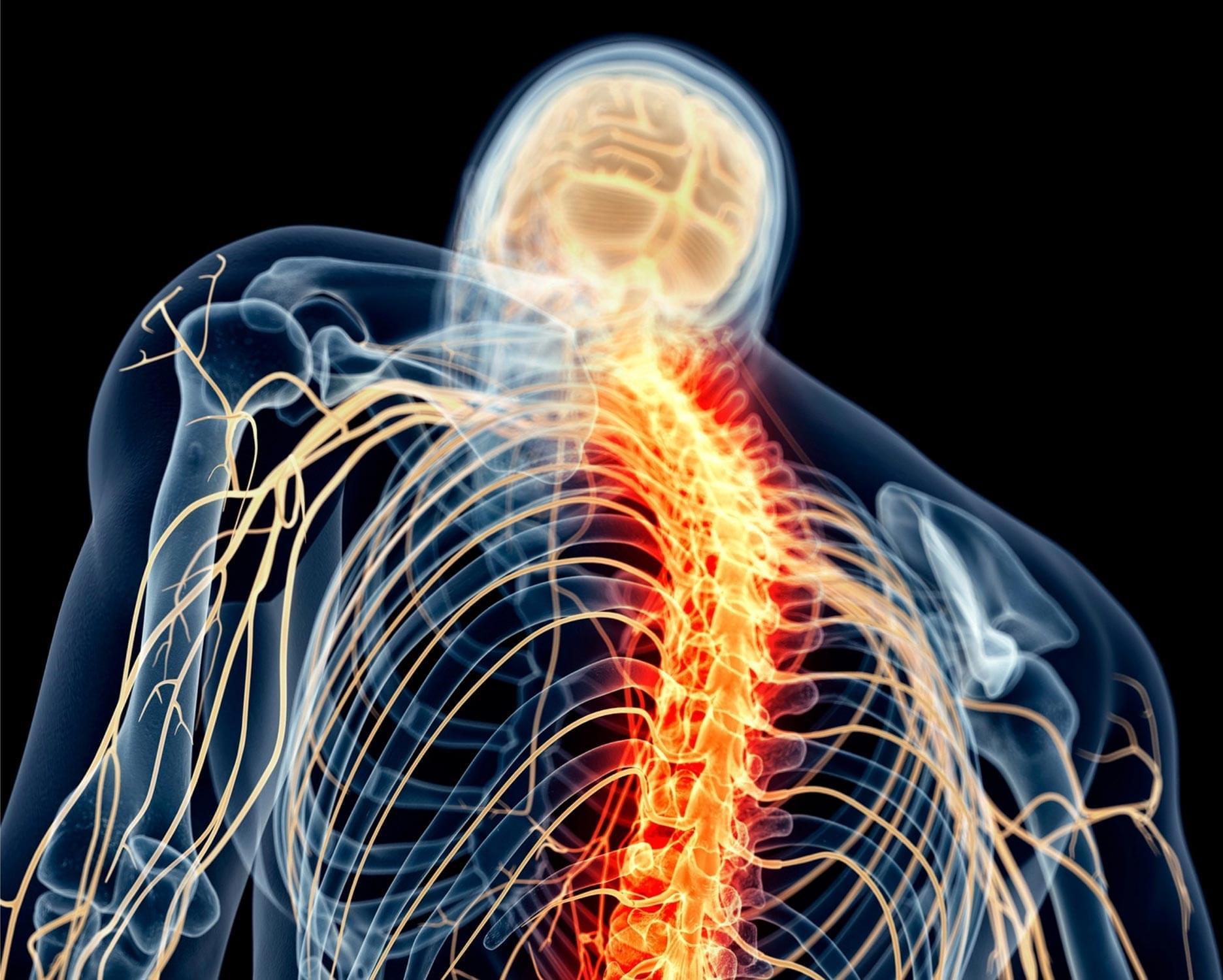A disaggregated in-physics computing architecture uses radio-frequency waves and mixers for machine learning at the wireless edge.


Ray, you’ve made two predictions that I think are important. The first one, as you said, was the one you announced back in 1989: that we would reach human-level AI by 2029. And as you said, people laughed at it.
But there’s another prediction you’ve made: that we will reach the Singularity by 2045. There’s a lot of confusion here. In other words, if we reach human-level AI by 2029 and it then grows exponentially, why do we have to wait until 2045 for the Singularity? Could you explain the difference between these two?
It’s because that’s the point at which our intelligence will become a thousand times greater. One of the ways my view differs from others is that I don’t see it as us having our own intelligence—that is, biological intelligence—while AI exists somewhere else, and we interact with it by comparing human intelligence to AI.
Founder of XPRIZE and pioneer in exponential technologies. Building a world of Abundance through innovation, longevity, and breakthrough ventures.



“A strong magnetic field is very important for life on a planet,” said Dr. Miki Nakajima.
How can magnetic fields help determine the habitability of exoplanets? This is what a recent study published in Nature Astronomy hopes to address as a team of researchers from the University of Rochester and the University of California, Los Angeles investigated the formation processes that create magnetic fields on Earth and exoplanets slightly larger than Earth called super-Earths. This study has the potential to help scientists better understand planetary formation processes and the planetary conditions to search for life as we know it.
For the study, the researchers used a combination of laboratory experiments and computer models to simulate the formation processes of exoplanets, specifically focusing on the formation of the interior magma ocean responsible for generating the planet’s magnetic field like on Earth. The goal of the study was to estimate the long-term evolution of super-Earths, which are estimated to be between 1–10 Earth masses and 2–3 Earth radii. In the end, the researchers found that super-Earths between 3–6 Earth masses can produce magnetic fields that are stronger than Earths for up to several billion years.
“A strong magnetic field is very important for life on a planet,” said Dr. Miki Nakajima, who is an associate professor of Earth and Environmental Sciences at the University of Rochester and lead author of the study. “But most of the terrestrial planets in the solar system, such as Venus and Mars, do not have them because their cores don’t have the right physical conditions to generate a magnetic field. However, super-earths can produce dynamos in their core and/or magma, which can increase their planetary habitability.”
The media and tech landscape is undergoing a significant transformation driven by advancements in AI, technology, and new structures, enabling entrepreneurs and companies to achieve exponential growth and innovation ## ## Questions to inspire discussion.
Building Your Own Platform.
🚀 Q: How can writers escape traditional media constraints? A: Launch on decentralized platforms like Substack where you build your own brand and business as a “non-fungible writer”, potentially creating organizations 10x larger than traditional media companies you’d work for.
💰 Q: What makes writer-led platforms attractive investments? A: Platforms become cornerstone franchises when writers only succeed by making the platform successful, creating aligned incentives that generate significant returns while enabling top talent to build independent businesses.
📊 Q: What content opportunity exists in decentralized media? A: A barbell market is emerging with mainstream filler content on one end and massive untapped demand for high-quality niche content on the other, creating opportunities across various specialized domains.
Leveraging AI for Business.
Tesla is ending the one-time purchase option for Full Self-Driving (FSD) and shifting to a monthly subscription model, likely to recapture the value of the technology as it advances towards full autonomy and potential expansion into a robo-taxi fleet ##
## Questions to inspire discussion.
Investment Signal.
🎯 Q: Why is Tesla ending FSD one-time purchases after February 14?
A: Tesla is stopping FSD sales because autonomy is approaching a major inflection point where value will step-change when drivers are out of the loop, and Tesla wants to avoid locking in one-time payments at legacy prices before entering the real robo-taxi world.
Revenue Model Transformation.
OpenAI is facing a potentially crippling lawsuit from Elon Musk, financial strain, and sustainability concerns, which could lead to its collapse and undermine its mission and trust in its AI technology ## ## Questions to inspire discussion.
Legal and Corporate Structure.
🔴 Q: What equity stake could Musk claim from OpenAI? A: Musk invested $30M representing 60% of OpenAI’s original funding and the lawsuit could force OpenAI to grant him equity as compensation for the nonprofit-to-for-profit transition that allegedly cut him out.
⚖️ Q: What are the trial odds and timeline for Musk’s lawsuit? A: The trial is set for April after a judge rejected OpenAI and Microsoft’s dismissal bid, with Kalshi predicting Musk has a 65% chance of winning the case.
Funding and Financial Stability.
💰 Q: How could the lawsuit impact OpenAI’s ability to raise capital? A: The lawsuit threatens to cut off OpenAI’s lifeline to cash and venture capital funding, potentially leading to insolvency and preventing them from pursuing an IPO due to uncertainty around financial stability and corporate governance.
Elon Musk’s lawsuit against OpenAI and his own ambitious plans for AI and tech innovations, including new devices and massive growth for his companies, are positioning him for a major impact on the tech industry, but also come with significant challenges and risks ## Questions to inspire discussion.
Legal Risk Management.
🔍 Q: How does the discovery process threaten OpenAI regardless of lawsuit outcome?
A: Discovery forces exposure of sensitive internal information including Greg Brockman’s 2017 diary entries revealing intent to become for-profit and violating prior agreements with Elon Musk, creating reputational damage and investor uncertainty even if OpenAI wins the case.
⏱️ Q: Why is lawsuit timing particularly damaging to OpenAI’s competitive position?
A: The lawsuit hits during OpenAI’s massive capital raise preparation, forcing delays in fundraising and implementation that allow competitors like Google and Anthropic to advance while OpenAI falls behind, similar to how Meta became less relevant in the AI race.
